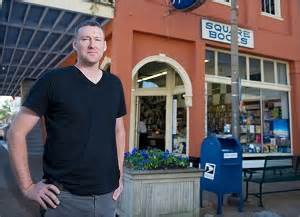A Quote by Jacqueline Woodson
When I write, I don't think about messages for my readers.
Related Quotes
I have a really good idea of who my readers are and always write with a sensitivity to my audience. I use the F word when necessary, but there are words I won't use, mainly because I don't like them. I don't write about body parts when I write about sex. It's not about the physiological, it's more important for teens to read about the emotional aspects. I do think there are times when self-censorship is important.
It was tricky [to write about Israelis], because everyone has an opinion about the Arab - Israeli conflict, and when I first started writing these stories, I was working for an Arab - Israeli human rights group. It was during the Second Intifada. It was this totally violent and intense time, and I think there's a part of me where I don't know how to write about that situation without getting my politics out of my messages, and that's something that was important for me not to do in this book.
Second, the reason to embrace and celebrate these novels as the countercultural event that they are is due largely to the subliminal messages delivered by Harry and friends in their stolen wheelbarrows. Readers walk away, maybe a little softer on the occult than they were, but with story-embedded messages: the importance of a pure soul; love's power even over death; about sacrifice and loyalty; a host of images and shadows about Christ and how essential 'right belief' is for personal transformation and victory over internal and external evils.
I don't think about the reader in any conscious way that impacts the writing, as far as, Hey, most readers would like this! But at the same time, if it were presented to me: "John, you're going to write a novel. It's going to take you a few years. When you're done with it, there's a law that no one's allowed to read it." I don't think I would write it. I want someone to read it!




































